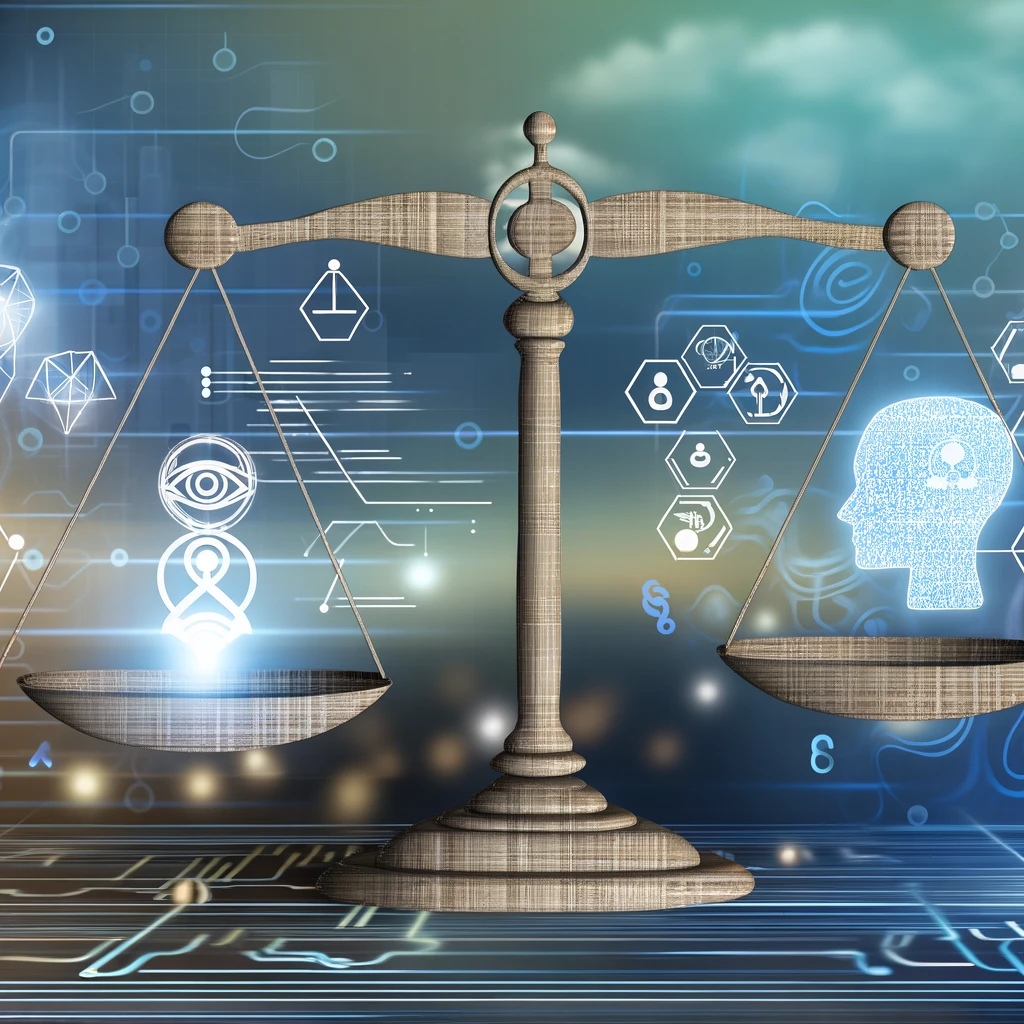The rapid advancement of artificial intelligence (AI) technology is transforming many aspects of human life. While it revolutionizes fields such as healthcare, finance, education, and transportation, it also raises significant ethical questions. The potential for innovation with AI is vast, but it is clear that this technology must be developed and used responsibly. This post explores the ethical implications of AI and examines the balance between innovation and responsibility.
Potential for Innovation
Artificial intelligence has the potential to revolutionize many sectors. For example, in healthcare, AI can assist in early disease detection, create personalized treatment plans, and accelerate medical research. In the financial sector, it can be used to detect fraud, improve risk management, and enhance customer service. In education, AI tools are being used to monitor student performance and support individualized learning paths.
This innovative potential of AI can make human life more efficient, safe, and comfortable. However, neglecting the ethical aspects of this technology can lead to significant long-term problems.

Ethical Issues
The development and use of artificial intelligence bring a range of ethical issues. Key concerns include data privacy, bias and discrimination, accountability, and impacts on the workforce.
Data Privacy: For AI systems to function effectively, they require large amounts of data, which often includes personal and sensitive information. Privacy breaches during the collection, storage, and processing of this data can threaten individuals’ privacy. Therefore, strict enforcement of data protection laws and the adoption of ethical data management principles are essential.
Bias and Discrimination: AI systems make decisions based on the datasets they are trained on. If these datasets are biased or incomplete, AI systems can produce biased outcomes. For example, an AI recruitment system might discriminate based on gender or race. To prevent such ethical issues, it is crucial to carefully select and regularly review datasets.
Accountability: The complexity of AI systems can make it difficult to determine responsibility for errors or wrong decisions. When an AI system makes a mistake, who is accountable? The developer, the user, or the company that produced the system? These questions highlight significant ethical concerns regarding the accountability of AI technology.

Impact on Workforce: AI can lead to the automation of certain jobs and replace human labor. This situation can cause social problems such as unemployment and income inequality. Therefore, it is important to develop social policies and support educational programs to mitigate the impact of AI on the workforce.
Balancing Innovation and Responsibility
Balancing the opportunities for innovation offered by AI with ethical responsibilities is crucial for both the development of the technology and the benefit of society. Various strategies can be adopted to achieve this balance:
Ethical Guidelines and Standards: To promote the ethical use of AI, international ethical guidelines and standards should be developed. These guidelines can provide direction during the design, development, and use of AI systems.
Transparency and Explainability: Understanding how AI systems work and what data they rely on can increase accountability. Therefore, AI systems must be transparent and explainable.
Inclusive and Fair Data Usage: For AI systems to make fair and unbiased decisions, datasets must be inclusive and balanced. Principles of diversity and inclusivity should be adopted in data collection and processing processes.
Education and Awareness: Raising awareness and educating users about the ethical use of AI can prevent ethical issues. Educational programs and awareness campaigns can be organized for this purpose.
Conclusion
The rapid advancement of artificial intelligence technology promises significant innovations while also bringing ethical responsibilities. Understanding the ethical implications of AI and establishing a balance between innovation and responsibility will ensure the sustainable and beneficial use of the technology for society. By adopting ethical principles, strategies such as transparency and accountability, it is possible to harness the positive potential of AI effectively.












Leave a Reply